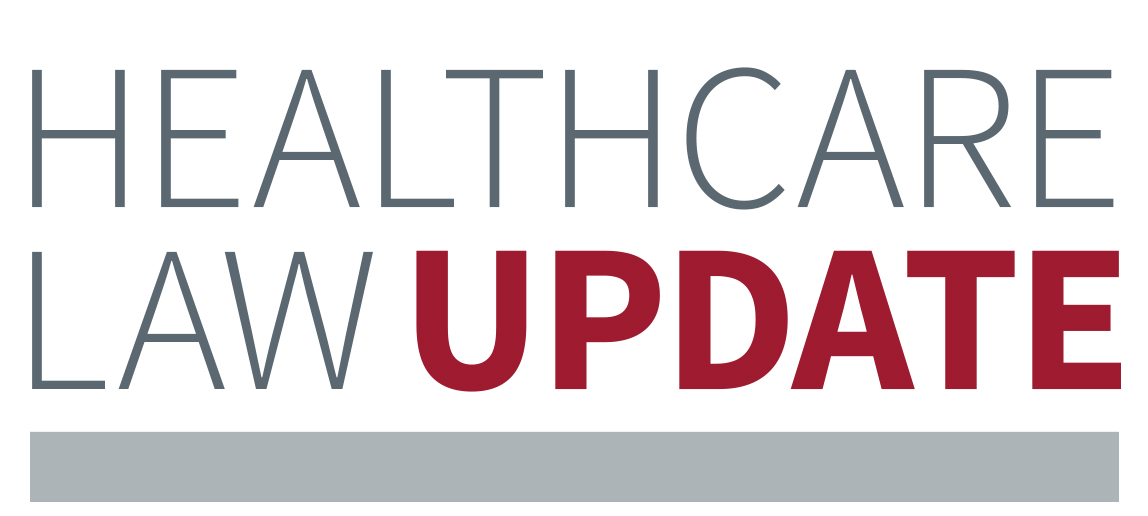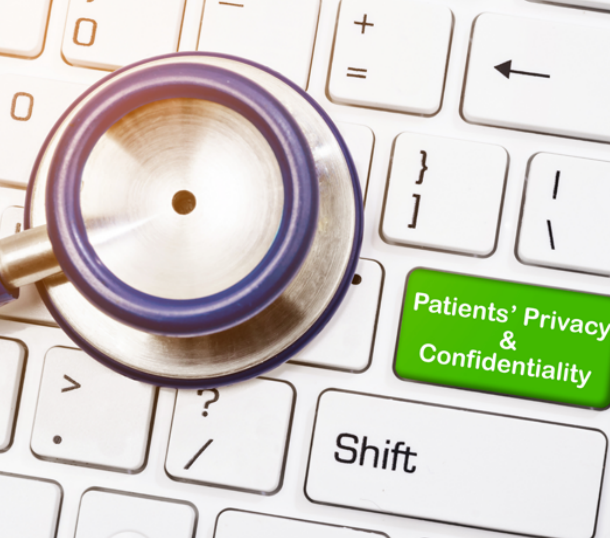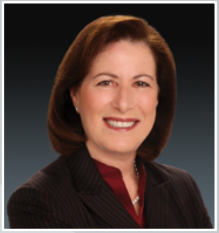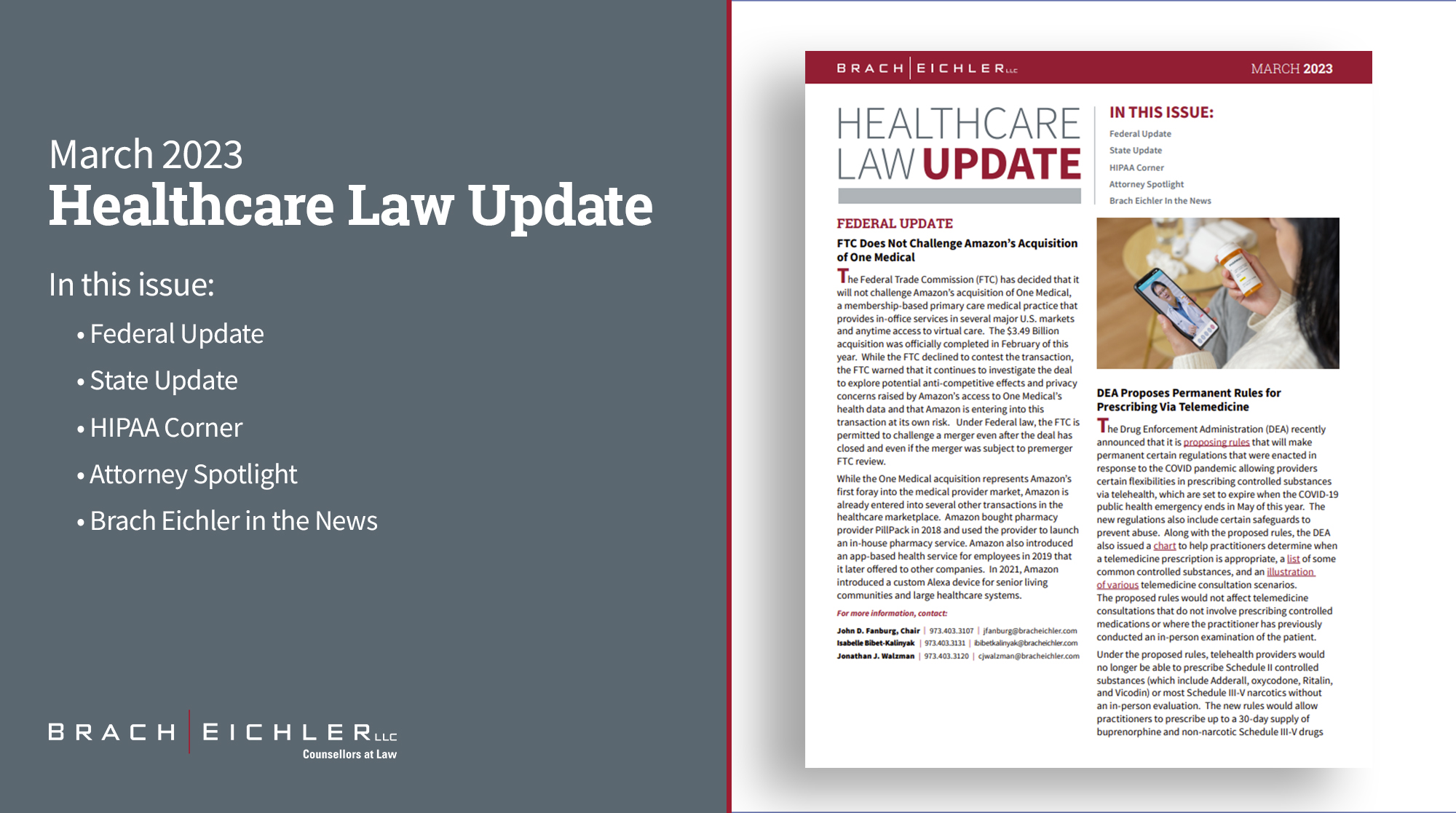

The Federal Trade Commission (FTC) has decided that it will not challenge Amazon’s acquisition of One Medical, a membership-based primary care medical practice that provides in-office services in several major U.S. markets and anytime access to virtual care. The $3.49 Billion acquisition was officially completed in February of this year. While the FTC declined to contest the transaction, the FTC warned that it continues to investigate the deal to explore potential anti-competitive effects and privacy concerns raised by Amazon’s access to One Medical’s health data and that Amazon is entering into this transaction at its own risk. Under Federal law, the FTC is permitted to challenge a merger even after the deal has closed and even if the merger was subject to premerger FTC review.
While the One Medical acquisition represents Amazon’s first foray into the medical provider market, Amazon is already entered into several other transactions in the healthcare marketplace. Amazon bought pharmacy provider PillPack in 2018 and used the provider to launch an in-house pharmacy service. Amazon also introduced an app-based health service for employees in 2019 that it later offered to other companies. In 2021, Amazon introduced a custom Alexa device for senior living communities and large healthcare systems.
For more information, contact:
John D. Fanburg, Chair | 973.403.3107 | jfanburg@bracheichler.com
Isabelle Bibet-Kalinyak | 973.403.3131 | ibibetkalinyak@bracheichler.com
Jonathan J. Walzman | 973.403.3120 | cjwalzman@bracheichler.com

The Drug Enforcement Administration (DEA) recently announced that it is proposing rules that will make permanent certain regulations that were enacted in response to the COVID pandemic allowing providers certain flexibilities in prescribing controlled substances via telehealth, which are set to expire when the COVID-19 public health emergency ends in May of this year. The new regulations also include certain safeguards to prevent abuse. Along with the proposed rules, the DEA also issued a chart to help practitioners determine when a telemedicine prescription is appropriate, a list of some common controlled substances, and an illustration of various telemedicine consultation scenarios. The proposed rules would not affect telemedicine consultations that do not involve prescribing controlled medications or where the practitioner has previously conducted an in-person examination of the patient.
Under the proposed rules, telehealth providers would no longer be able to prescribe Schedule II controlled substances (which include Adderall, oxycodone, Ritalin, and Vicodin) or most Schedule III-V narcotics without an in-person evaluation. The new rules would allow practitioners to prescribe up to a 30-day supply of buprenorphine and non-narcotic Schedule III-V drugs
(which include Ambien, Valium, Xanax, and ketamine) through telemedicine without the initial in-person visit. An in-person visit would be required for a patient to get refills beyond the initial 30-day supply. If a patient had an initial in-person exam with a practitioner who subsequently referred the patient to a second practitioner, the second practitioner may conduct a telemedicine exam of the patient and prescribe a controlled substance without personally conducting an in-person exam so long as both practitioners are DEA registered. If a telemedicine relationship was established and the patient has already been receiving prescriptions by telemedicine during the COVID-19 public health emergency, the DEA will extend the in-person exam waiver for an additional 180 days. The rule also proposes additional record-keeping requirements and other safeguards.
For more information, contact:
Isabelle Bibet-Kalinyak | 973.403.3131 | ibibetkalinyak@bracheichler.com
Jonathan J. Walzman | 973.403.3120 | cjwalzman@bracheichler.com
Harshita Rathore | 973.364.8393 | hrathore@bracheichler.com

The U.S. government has finalized a settlement agreement totaling $8.5 million with the University of Pittsburgh Medical Center (UPMC), University of Pittsburgh Physicians (UPP), and one of their affiliated surgeons regarding a false claims lawsuit alleging that the surgeon violated Medicare and Medicaid rules by scheduling multiple surgeries at the same time. The practice of scheduling concurrent surgeries, which is commonly referred to as “running two rooms” and has been standard in many teaching hospitals, typically
involves a senior attending surgeon who delegates trainees, usually residents or fellows, to perform parts of one surgery while the attending surgeon works on a patient in another operating room. According to the government’s complaint, the physician, a cardiothoracic surgeon, would schedule simultaneous surgeries in two interconnected operating suites along with a third surgery in a different room. The surgeon would perform each of the surgeries in the adjoining rooms up to a certain point, leave to do the third, and then come back to finish the first two.
Both Centers for Medicare and Medicaid Services guidelines and federal regulations applicable to teaching hospitals like UPMC require a surgeon to be present or immediately available for all of the critical parts of an operation, including the “time out” before the start of a procedure for final checks. According to the government’s complaint, the double and sometimes triple booking employed by UPMC and the surgeon violated these rules and should have prevented the surgeon and the hospital from billing government health plans for these services. In addition to the regulations, the process implemented by UPMC also creates patient care issues, including keeping patients under anesthesia for prolonged periods and leaving residents or fellows to perform surgeries without supervision. In addition to the financial component of the settlement, UPMC and the surgeon agreed to create and put into effect a corrective action plan for the surgeon and to submit to a year-long third-party audit of the surgeon’s fee services billing to Medicare. UPMC, UPP, and the surgeon did not admit to liability as part of the settlement.
For more information, contact:
Keith J. Roberts | 973.364.5201 | kroberts@bracheichler.com
Edward Hilzenrath | 973.403.3114 | ehilzenrath@bracheichler.com
Paul DeMartino, Jr. | 973.364.5228 | pdemartino@bracheichler.com
On February 1, 2023, a federal grand jury in Wisconsin indicted Kevin Breslin, a New Jersey resident, and his company KBWB Operations, LLC, doing business as Atrium Health and Senior Living, a company that operates nursing homes and assisted living facilities, for allegedly defrauding Medicare and Medicaid.
The DOJ alleges that from January 2015 through September 2018, the company billed Medicare over $189 million and received over $49 million, and billed
Medicaid over $218 million and received over $93 million. In receiving these funds, the company certified that it would use the funds to follow all required quality of care standards and would operate its facilities with adequate staffing, supplies, and services; but, it failed to do so. Instead, the company diverted funds from its Wisconsin facilities to pay the owners and investors who were financing the construction of their New Jersey facilities. In addition, the defendants withheld insurance premiums and 401k contributions from employees and evaded tax payments.
In its complaint, the DOJ has charged the defendants with conspiracy to commit tax fraud, health care fraud, wire fraud, mail fraud, and money laundering fraud. If convicted, the defendants may face significant jail time and substantial fines.
For more information, contact:
Lani M. Dornfeld, CHPC | 973.403.3136 | ldornfeld@bracheichler.com
Edward J. Yun | 973.364.5229 | eyun@bracheichler.com
Sally Olson | 973.403.3102 | solson@bracheichler.com
In advisory opinion No. 23-01, issued on February 17, 2023, the Office of Inspector General (OIG) declined to impose sanctions on a drug manufacturer that provided financial assistance for transportation, lodging, and meals to financially needy pediatric patients and their caregivers in connection with the drug manufacturer’s drug. The advisory opinion analyzed whether the arrangement implicated the Anti-Kickback Statute (AKS) and the beneficiary inducement civil monetary penalty rules (Beneficiary Inducements CMP).
Although the OIG determined that the arrangement implicated the AKS because it would generate prohibited remuneration if the requisite intent were present, the OIG did not impose sanctions under the AKS because the unique facts presented collectively reduced the risk of potential for fraud and abuse. Such facts included the following:
•The drug is a one-time potentially curative treatment.
•The drug is the only treatment available to rebuild the patient’s immune system.
•The condition is very rare.
•The drug may only be manufactured at one facility and the drug has a short 3-hour shelf life, requiring patients to travel to the specific treatment center.
•Patients must meet certain eligibility criteria, such as a household income threshold, to receive financial assistance.
•Eligibility for financial assistance from the drug manufacturer is contingent on sources of funding or coverage being unavailable.
•Costs of the arrangement are not shifted to federal health care programs and the drug is priced independently of the cost of the arrangement.
The OIG stated that the remuneration offered under the arrangement would not likely influence a patient to select the treatment center where the drug is administered. Rather, it was the limitations related to the manufacturing and distribution of the drug that would likely influence a patient’s decision-making.
For more information, contact:
Carol Grelecki | 973.403.3140 | cgrelecki@bracheichler.com
Edward J. Yun | 973.364.5229 | eyun@bracheichler.com
Cynthia J. Liba | 973.403.3106 | cliba@bracheichler.com

On February 28, 2023, a Minnesota federal jury found an ophthalmology distributor, Precision Lens, and its owner, Paul Ehlen, liable for more than $43 million under the False Claims Act (FCA) for violating the Anti-Kickback Statute. The Anti-Kickback Statue prohibits offering, paying, soliciting, or receiving remuneration to induce referrals of items or services covered by Medicare, Medicaid, and other federally funded healthcare programs. Under the FCA, damages may be tripled. Precision Lens and Ehlen were found to have paid kickbacks to physicians to induce the use
of their products in cataract surgeries reimbursed by Medicare. The lawsuit was brought by a whistleblower, under the qui tam provisions of the FCA. This provision permits private parties to bring suit on behalf of the government for false claims.
Kickbacks paid to physicians by Precision Lens and Ehlen were in the form of travel and entertainment, including high-end skiing, fishing, golfing, hunting, sporting, and entertainment vacations, often at exclusive destinations. Physicians were transported on private jets to New York City to see a Broadway musical, the College Football National Championship Game in Miami, Florida, and the Masters golf tournament in Augusta, Georgia. Precision Lens and Ehlen also sold frequent flyer miles to their physician customers at a significant discount, enabling the physicians to take personal and business trips at well below fair market value.
For more information, contact:
Isabelle Bibet-Kalinyak | 973.403.3131 | ibibetkalinyak@bracheichler.com
Edward J. Yun | 973.364.5229 | eyun@bracheichler.com
Cynthia J. Liba | 973.403.3106 | cliba@bracheichler.com
On February 3, 2023, the Department of Justice (“DOJ”) issued a press release announcing the withdrawal of three antitrust policy statements related to enforcement in healthcare markets, including DOJ and FTC Antitrust Enforcement Policy Statements in the Health Care Area (September 15, 1993), Statements of Antitrust Enforcement Policy in Health Care (August 1, 1996), and Statement of Antitrust Enforcement Policy Regarding Accountable Care Organizations Participating in the Medicare Shared Savings Program (October 20, 2011). The DOJ found that these policies were not aligned with current best practices on information sharing and no longer served the purpose of providing guidance to the public regarding healthcare competition. The DOJ stated that recent enforcement actions in healthcare should guide the public and that a case-by-case approach to enforcement will allow the DOJ to better evaluate mergers and monitor conduct that may harm competition in healthcare markets.
For more information, contact:
John D. Fanburg, Chair | 973.403.3107 | fanburg@bracheichler.com
Edward Hilzenrath | 973.403.3114 | ehilzenrath@bracheichler.com
Vanessa Coleman | 973.364.5208 | vcoleman@bracheichler.com

On February 17, 2023, the New Jersey Supreme Court ruled that judges may look outside general scientific community norms when determining the admissibility of expert testimony relating to suspected intoxication in criminal cases.
In criminal cases involving suspected intoxication, the testimony of drug recognition experts, or DREs, are used. DREs apply twelve factors to assess whether a person is under the influence of a drug. Before this ruling, DREs were held to the “Frye Standard,” which allowed expert testimony to be admitted if it was “generally accepted” as reliable according to the scientific community. However, the Court noted that DREs are not a “scientific community” and defining one for them would be difficult. Thus, the Court concluded that the “Daubert Standard” should now apply to testimony in criminal proceedings. This standard allows judges to examine how reliable or scientific the testimony is – not basing it on a scientific community. Judges may now view DRE testimony on a case-by-case basis.
This decision provides judges with an opportunity to better understand and assess scientific theories, techniques, and most importantly, emerging areas of science. Allowing this kind of testimony in court comes at a pivotal time for New Jersey, as the state recently legalized cannabis.
For more information, contact:
Joseph M. Gorrell | 973.403.3112 | jgorrell@bracheichler.com
Richard Robins | 973.447.9663 | rrobins@bracheichler.com
Carol Grelecki | 973.403.3140 | cgrelecki@bracheichler.com

A New Jersey Appellate Court recently issued an unpublished opinion finding that an employee’s accrued paid time off (PTO) did not constitute wages under the New Jersey Wage Payment Law (WPL). When an employee resigns or has been discharged, the WPL requires the employer to pay any wages due to that employee upon termination. Under the WPL, wages are defined as “any moneys due an employee from the employer.” The case in question involved an employee who sought payment for accrued PTO hours, arguing that such an amount constituted “wages” owed to her upon her termination under the WPL. The court opined that the accrued PTO did not constitute wages because, on the date of her termination, the employee had not yet taken time off so she was not yet entitled to monetary compensation for that time. Rather, the PTO permitted the employee to take time off in the future, and only then would she be entitled to receive wages for that PTO.
For more information, contact:
Keith J. Roberts | 973.364.5201 | kroberts@bracheichler.com
Caroline J. Patterson | 973.403.3141 | cpatterson@bracheichler.com
Emily J. Harris | 973.364.5205 | eharris@bracheichler.com
The New Jersey Appellate Division issued an unpublished opinion regarding a dispute between physician owners of a medical practice involving the interpretation of the medical practice’s governing
documents. The dispute centered around one of the owner’s permanent disability and his entitlement to the net profits of the practice until the completion of his contractual buy-out. As a result of the disability, the physician was no longer able to provide services under the applicable agreements. The disabled physician argued that he was entitled to his share of the profits of the practice, even though he was not providing services, until that contractual buy-out was completed. The court found that a strict interpretation of the documents and the parties’ course of dealing did not support his claim to profits because he did not comply with the expectations and obligations of practice owners while disabled. Additionally, the court noted that the agreements did not require the practice to pay a permanently disabled member any profits pending a resolution of the buy-out of the member’s interest. As such, the court held that the disabled physician was not entitled to receive his share of the net profits of the practice during the time period of his disability before the completion of his buy-out.
For more information, contact:
Joseph M. Gorrell | 973.403.3112 | jgorrell@bracheichler.com
Caroline J. Patterson | 973.403.3141 | cpatterson@bracheichler.com
Emily J. Harris | 973.364.5205 | eharris@bracheichler.com
Assembly Bill 2193, which seeks to amend New Jersey’s telehealth and telemedicine statute, passed in the New Jersey General Assembly on February 28, 2023 and is now being considered by the Senate. If enacted, this bill would revise the emergency care services referral standards for providers of telemedicine and telehealth. A healthcare provider would still be required to make the appropriate referral for in-person emergency care if a patient should have a need and assist a patient if the provider observes the patient experiencing a healthcare emergency during a telehealth encounter. Otherwise, a provider would no longer be required to make a good faith effort to directly contact and coordinate with emergency services and facilitate the exchange of information between emergency services and the patient during an emergency.
Assembly Bill 3199, also known as the Health Care Heroes Violence Prevention Act, passed in both houses of the New Jersey Legislature in February 2023, but has not yet been signed into law by Governor Phil Murphy. The Act would expand the aggravating factors a court may use in sentencing, including whether the defendant committed the offense against any healthcare professional, volunteer, or employee while they were engaged in their practice or duties. The Act would make it a criminal offense to threaten a healthcare professional, volunteer, or employee. The Act also would include anger management courses and community service as possible punishments for individuals convicted of assault against a healthcare professional, volunteer, or employee.

Assembly Bill 5180 was introduced and referred to the Assembly Health Committee on February 13, 2023. If enacted, this bill would establish certain protections for persons who provide, receive, or allow a child to receive gender-affirming healthcare. The bill would bar healthcare facilities and healthcare professionals from providing the medical records of any child seeking or receiving gender-affirming healthcare in furtherance of any interstate investigation or proceeding based on another state’s law seeking to impose civil or criminal liability upon a person or entity providing gender-affirming health care to a child. The bill would also limit the circumstances under which medical records of any child seeking or receiving gender-affirming health care may be released.
For more information, contact:
John D. Fanburg, Chair | 973.403.3107 | jfanburg@bracheichler.com
Edward Hilzenrath | 973.403.3114 | ehilzenrath@bracheichler.com
Vanessa Coleman | 973.364.5208 | vcoleman@bracheichler.com
On February 17, 2023, the U.S. Department of Health & Human Services, Office for Civil Rights (OCR) published its Annual Report to Congress on Breaches of Unsecured Protected Health Information for Calendar Year 2021. While a slight decrease from calendar year 2020, in calendar year 2021 the OCR received 609 notifications of breaches of “unsecured” protected health information (PHI) affecting 500 or more individuals. Although the number of notifications in this category was only 609, the number of individuals affected by such breach events was 37,182,558. Monetary penalties totaled $5,125,000.
The covered entities and business associates implicated in these breach events included:
•437 reports (72%) of breaches from health care providers (affecting 24,389,630 individuals (66%))
•93 reports (15%) of breaches from health plans (affecting 3,236,443 individuals (9%))
•77 reports (13%) of breaches from business associates (affecting 9,554,023 individuals (26%))
•2 reports (<1%) of breaches from health care clearinghouses (affecting 2,462 individuals (<1%))
The types of breach events included:
•Hacking/IT incident of electronic equipment or a network server (459 reports (75%) affecting 35,264,773 individuals (95%))
•Unauthorized access or disclosure of records containing PHI (115 reports (19%) affecting 1,569,765 individuals (4%))
•Theft of electronic equipment/portable devices or paper containing PHI (21 reports (3%) affecting 123,615 individuals (<1%))
•Loss of electronic media or paper records containing PHI (9 reports (1%) affecting 33,845 individuals (<1%))
•Improper disposal of PHI (5 reports (1%) affecting 190,540 individuals (1%))
As to hacking/IT incidents, OCR reported that the “largest breach in 2021 [resulted] from a hacking/IT incident in which two former employees hacked the server of a healthcare provider containing ePHI. The breach incident affected 3,253,822 individuals. Other hacking/IT incidents involved the use of malware, ransomware, phishing, and the posting of PHI to public websites.”

With respect to reported breaches involving fewer than 500 individuals, OCR received 63,571 reports, affecting a total of 319,215 individuals. In order of frequency, these included unauthorized access or disclosure (65%), loss (3%), hacking/IT incidents (1%), theft (1%), and improper disposal (2%).
The OCR’s report highlights the types of threats to PHI faced by the health care industry; the takeaway is that covered entities and business associates must be ever-vigilant in maintaining a strong privacy and security program, including periodic risks assessments to identify and address potential threats and vulnerabilities to PHI, whether paper or electronic.
For assistance with your organization’s privacy and security
program, contact:
Lani M. Dornfeld, CHPC | 973.403.3136 | ldornfeld@bracheichler.com
Get to know the faces and stories of the people behind the articles in each issue. This month, we invite you to meet Partner Shannon Carroll and Counsel Debra Levine.
 SHANNON CARROLL
SHANNON CARROLL
Describe a recent significant client victory.
We recently defeated a summary judgment motion on a complex insurance fraud case against a major insurance carrier. The carrier alleged that the corporate structure of a multidisciplinary practice, owned by a chiropractor and a plenary licensed physician was fraudulent based on underlying qualifying regulations. The carrier sought over $1 million in damages. Based on our comprehensive opposition papers and argument, the Court denied the carrier’s motion. In part, the Court held that there were issues of fact barring summary judgment as to whether there could be a knowing violation of law under the facts of this case. This was a key victory for our clients.
Why did you focus your legal practice on healthcare law?
I started working in healthcare advocating for medical providers in disputes over non-compete issues and hospital medical staff matters. I developed a strong understanding of state and local healthcare regulations. From there, I began representing health care professionals in licensing board matters, insurance carrier investigations, false claims act cases, reimbursement disputes and insurance fraud litigation. The firm’s strong healthcare background and practice group allows me to litigate these disputes on behalf of our clients from a unique position of strength.
 DEBRA LEVINE
DEBRA LEVINE
Describe a recent significant client victory.
I represented an applicant for a New Jersey medical license who was educated and trained abroad which did not align with New Jersey’s multifaceted, complicated and specific requirements. I worked closely with the applicant to establish the facts supporting that his many years of education, training and experience are the “substantial equivalent” of the standards, both in quality and quantity, that New Jersey requires for licensure. After the Board’s consideration of the extensive Petition, the applicant was granted an unrestricted New Jersey medical license. Both the physician and his employer are extremely satisfied with the positive result Brach Eichler achieved.
Why did you focus your legal practice on healthcare law?
I acquired vast healthcare law experience serving as the longstanding Deputy Attorney General/Assistant Section Chief responsible for legal counsel to the New Jersey Board of Medical Examiners and all of the Health Care Boards under the Division of Consumer Affairs. I have extensive knowledge in the areas of New Jersey state professional board regulations, board disciplinary and investigatory matters, professional credentialing, the interrelationships between various scopes of practice, and the business aspect of the practice of health care. Importantly, as a health care attorney at Brach Eichler with many prior years of health care law experience in government service, I have an appreciation for both the regulators’ and the health care practitioners’ perspectives.

On March 21, Healthcare Law Member Carol Grelecki, presented a legal update report at the Radiological Society of New Jersey.
On March 2, Brach Eichler’s newly promoted partners were spotlighted in New Jersey Law Journal’s 2023 New Partners Yearbook.
Join us for the 12th Annual New Jersey Healthcare Market Review, September 28-29, 2023 at the Borgata Hotel Casino & Spa, Atlantic City, NJ! Connect with over 200 attendees comprised of hospital and ASC executives and stakeholders, physicians, practice owners/managers, and healthcare administrators. During this two-day event, industry experts will discuss timely topics and trends in the healthcare and legal space ranging from legislative issues to operating and business strategies for greater profitability. To learn more and register, please visit www.njhmr.com. For questions or additional information, please reach out to Ilana Schackman at ischackman@bracheichler.com.

Attorney Advertising: This publication is designed to provide Brach Eichler LLC clients and
contacts with information they can use to more effectively manage their businesses. The contents
of this publication are for informational purposes only. Neither this publication nor the lawyers who
authored it are rendering legal or other professional advice or opinions on specific facts or matters.
Brach Eichler LLC assumes no liability in connection with the use of this publication.

Shannon Carroll | 973.403.3126 | scarroll@bracheichler.com
Riza I. Dagli | 973.403.3103 | rdagli@bracheichler.com
Lani M. Dornfeld | 973.403.3136 | ldornfeld@bracheichler.com
John D. Fanburg, Chair | 973.403.3107 | jfanburg@bracheichler.com
Joseph M. Gorrell | 973.403.3112 | jgorrell@bracheichler.com
Carol Grelecki | 973.403.3140 | cgrelecki@bracheichler.com
Caroline J. Patterson | 973.403.3141 | cpatterson@bracheichler.com
Keith J. Roberts | 973.364.5201 | kroberts@bracheichler.com
Richard B. Robins | 973.447.9663 | rrobins@bracheichler.com
Jonathan J. Walzman | 973.403.3120 | jwalzman@bracheichler.com
Edward J. Yun | 973.364.5229 | eyun@bracheichler.com
Paul J. DeMartino, Jr. | 973.364.5228 | pdemartino@bracheichler.com
Emily J. Harris | 973.364.5205 | eharris@bracheichler.com
Cynthia J. Liba | 973.403.3106 | cliba@bracheichler.com
Sally Olson | 973.403.3102 | solson@bracheichler.com
Harshita Rathore | 973.364.8393 | hrathore@bracheichler.com
Roseland, NJ | New York, NY | West Palm Beach, FL | www.bracheichler.com | 973.228.5700




